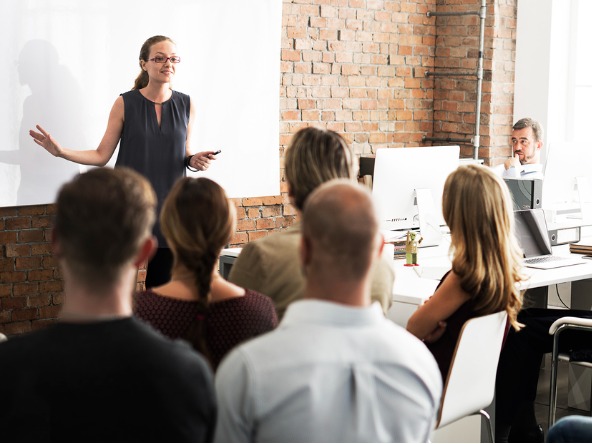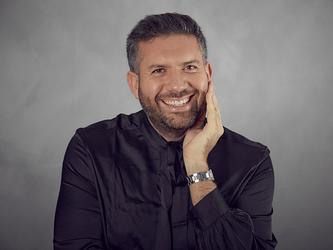Debriefs should be face-to-face again

My earlier years as a researcher were punctuated by debriefs. Many, I remember cinematically – the adrenaline, angst beforehand; the elation and relief afterwards.
These debriefs were important formative landmark moments, each one a moment of accelerated development. Some stand out more than others, but each had its own special significance.
As someone who struggled greatly with nerves, each successful debrief served as a reassurance and level-up moment, and cumulatively all those debrief moments were crucial in demonstrating to myself that “yes, I can do this”, and in growing my confidence and self-belief.
Today’s hybrid working environment has sacrificed these important development moments in favour of practicality. This comes at the expense of younger talent’s development. Debriefing on Teams is not the same as presenting a research report in person.
Of course, I recognise the merits of hybrid working generally and am a big supporter of it, and of flexible working generally. For home, wellbeing and sustainability reasons, minimising commutes is game-changing. Professionally, hybrid working also allows us to have much more contact time with our clients, which benefits our relationships. In the old world, a trip to visit a client in Norwich, say, would basically occupy a full tiring day.
Nowadays, my team can sometimes even deliver more than one debrief a day (though never intentionally; only when scheduling absolutely necessitates it). A debrief is a big deal, with all the pressure of building, rehearsing, and delivering the report. A decompression moment should follow a debrief.
All of this said, I do believe that a detailed research report should ideally be presented face-to-face. Complexity is best conveyed in person, not least to ensure that the audience is engaged, and following the detail. When presenting in person, we can soon tell if someone doesn’t feel clear on the content of a slide, and can explain the context and meaning of the data on-screen. With an audience with cameras off, this is very tricky.
Real-world debriefs also allow us to build and nourish our client relationships. There’s nothing like being together, and important conversations can happen before, during, and after the presentation.
In person, audiences can feel more comfortable chipping in interpretations, comments and hypotheses, rather than facing the daunting prospect of un-muting, or ‘raising hand’, on a video call in order to contribute and ‘interrupt’ the virtual presentation.
Commercially, new projects have often been birthed from these “extra time” chats, but these conversations were – above all – special chances get to know our clients better as people, and not just faces on a screen. Real, human relationships.
Within the research team, the ritualistic trip home after the debrief was sacred time. A chance to share feedback with teams on how they did (in a personal way, and close to the moment). A chance to enjoy a refreshment or two on the train home. And a chance generally to just have a laugh and share a tired, happy cloud of adrenaline-comedown relief. And again, important chats, getting to know each other better, and hearing what’s going on in our lives, would often take place on these trips home.
So, at the risk of sounding like a return to office militant, this article is a plea to make space for more face-to-face debriefs. Perhaps not every time, but certainly as often as possible.
The development of our talent, the depth of our client relationships, and an important aspect of the theatre, quality – and, ultimately, impact – of our craft, runs the risk of becoming dented forever.
Michael Brown is managing partner of insight, data solutions and marketing at UM London and co-chair of MRS Pride

We hope you enjoyed this article.
Research Live is published by MRS.
The Market Research Society (MRS) exists to promote and protect the research sector, showcasing how research delivers impact for businesses and government.
Members of MRS enjoy many benefits including tailoured policy guidance, discounts on training and conferences, and access to member-only content.
For example, there's an archive of winning case studies from over a decade of MRS Awards.
Find out more about the benefits of joining MRS here.














0 Comments